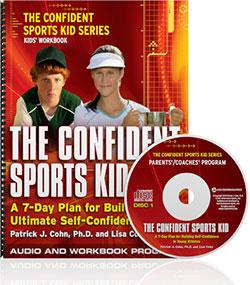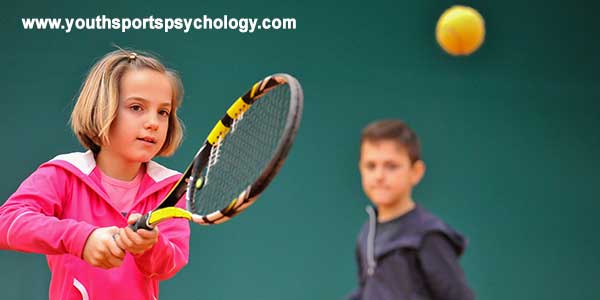How to Use Mental Imagery to Boost Performance
Mental imagery is a useful mental game skill that can improve young athletes’ performance. Many athletes have experienced success using visualization daily in their training regimes.
Athletes say that visualization boosts confidence, improves focus, creates poise under pressure, improves consistency and makes it easier to focus.
If so many successful athletes visualize, what exactly is holding your sports kids back from adopting this reliable strategy?
Truth is, most athletes use mental imagery naturally when they practice and compete. They just don’t call it mental imagery. For example, soccer players “see” the entire field in their minds. Golfers visualize a putt from behind the ball. Tennis players feel a solid serve as they step up to the line. Football players see plays in their heads.
Your athletes can take advantage of several strategies for using mental imagery. They can use it before practicing any skill.
The key is to use a style that is comfortable and complements their learning style. Kids might be auditory, kinesthetic, visual or tactile learners–or a combination of styles.
Take the experience of a PGA Tour Pro who worked with Dr. Cohn. One day, the pro started talking about routines and visualizing golf shots.
He said,“I can’t really see the shot in my mind, but I’ve heard so many players talking about it, including Jack Nicklaus.” He asked why he can’t see a shot in his mind when he tries so hard.
The answer: It’s all about the athlete’s learning style.
Visualization Depends on Your Learning Style
Not all athletes can visualize their shots or see the path of the ball. That’s because some are more kinesthetic or tactile oriented, which is not a bad thing. Kinesthetic learners like to move and possess excellent physical memories. Tactile learners, who are similar to kinesthetic learners, learn by doing. They like hands-on learning.
In this case, the pro and Dr. Cohn talked about the images the pro could use in his routine.
Kids who are mostly “feel” players should think about good balance, tempo or feeling free with their performance.
They should try thinking back to a game or performance in which they played well. Did they use certain types of images when competing? They should try to replicate the same image.
Young athletes shouldn’t force themselves into a style of imagery that doesn’t suit them. Whether young athletes are shooting free-throws or kicking field goals, they need to use imagery that fits their learning style.
The images in kids’ imaginations prime their minds and bodies for success by imprinting successful outcomes in their minds.
Wizards center Ian Mahinmi puts it this way, “It [positive imaging] is like building muscle memory, but for your brain.” It’s really motor memory, but coaches refer to it as muscle memory.
Here are some tips for using mental imagery to boost kids’ performance.
- First of all, young athletes need to relax and get comfortable. This helps quiet their minds.
- Second, kids should see and or feel themselves performing the way they want to perform during competition.
- Third, they need to use as many senses as possible. This paves the way for a more realistic experience.
- Fourth, kids need to rehearse only positive outcomes, at least in the beginning.
- And fifth, they should immerse themselves in the emotions they feel when performing well.
Athlete should tap into their dominant learning and performing style. Are they visual, auditory, kinesthetic or feel-oriented learners?
Parents and coaches, you should keep in mind that visualization is a skill that can be honed with practice. Once young athletes improve this skill, they can use their imaginations to prepare themselves for success.
Related Sports Psychology Articles
- Comparison’s Impact on Athletes Confidence
- Help Young Athletes Build Trust and Confidence
- Helping Sports Kids Build Confidence When Injured
*Subscribe to The Ultimate Sports Parent Podcast
*Subscribe to Peak Performance Sports on Youtube
Download a free sports psychology report to improve your mental game!
The Confident Sports Kid

When kids lack confidence, they doubt themselves, stop taking risks, play tentatively, and are hard on themselves. As a result, kids often lose their motivation to improve. Ultimately, these barriers keep them from enjoying sports and making the most of their physical talent.
“The Confident Sports Kid” program is actually two programs: one that teaches sports parents how to boost their kids’ confidence, and another that teaches young athletes age 8 to 18 how to improve their self talk, avoid negative thinking, overcome expectations that limit confidence, and much more. The program will help kids boost their confidence in sports and life…and enjoy sports more.

